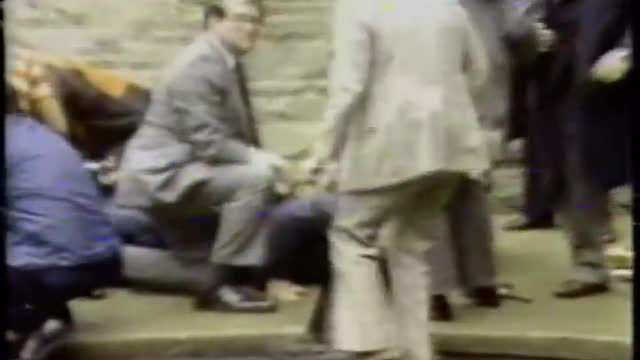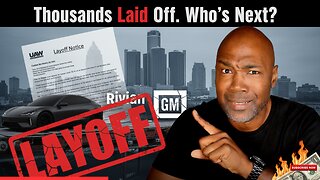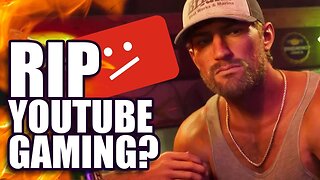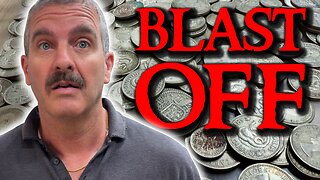Premium Only Content

President Ronald Reagan assassination attempt - First ABC News Bulletin - March 30, 1981
March 30, 1981, President of the United States Ronald Reagan was shot and wounded by John Hinckley Jr. in Washington, D.C.
Reagan was seriously wounded by a revolver bullet that ricocheted off the side of the presidential limousine and hit him in the left underarm, breaking a rib, puncturing a lung, and causing serious internal bleeding. He was close to death upon arrival at George Washington University Hospital but was stabilized in the emergency room; he then underwent emergency exploratory surgery. He recovered and was released from the hospital on April 11. No formal invocation of sections 3 or 4 of the Constitution's 25th amendment (concerning the vice president assuming the president's powers and duties) took place, though Secretary of State Alexander Haig stated that he was "in control here" at the White House until Vice President George H. W. Bush returned to Washington from Fort Worth, Texas. Haig was fourth in the line of succession after Bush, Speaker of the House Tip O'Neill, and president pro tempore of the Senate Strom Thurmond.
Ronald Wilson Reagan (/ˈreɪɡən/ RAY-gən; February 6, 1911 – June 5, 2004) was an American politician and actor who served as the 40th president of the United States from 1981 to 1989. A member of the Republican Party, his presidency constituted the Reagan era, and he is considered one of the most prominent conservative figures in American history.
On March 30, 1981, President of the United States Ronald Reagan was shot and wounded by John Hinckley Jr. in Washington, D.C., as he was returning to his limousine after a speaking engagement at the Washington Hilton. Hinckley believed the attack would impress actress Jodie Foster, with whom he had developed an erotomanic obsession.
2008, British historian M. J. Heale summarized that scholars had reached a broad consensus in which "Ronald Reagan rehabilitated conservatism, turned the country to the right, practiced a 'pragmatic conservatism' that balanced ideology with the constraints of government, revived faith in the presidency and American self-respect, and contributed to critically ending the Cold War", which ended with the dissolution of the Soviet Union in 1991. Many conservative and liberal scholars have agreed that Ronald Reagan has been the most influential president since Roosevelt, leaving his imprint on American politics, diplomacy, culture, and economics through his effective communication of his conservative agenda and pragmatic compromising. During the initial years of Ronald Reagan's post-presidency, historical rankings placed his presidency in the twenties. Throughout the 2000s and 2010s, his presidency was often placed in the top ten.
-
 8:14
8:14
The 1980s
5 days agoGoing to the movies in 1987 - Beverly Center in California
143 -
 LIVE
LIVE
Spartan
20 hours agoFirst playthrough of First Berserker Khazan
305 watching -
 28:01
28:01
Living Your Wellness Life
2 days agoTrain Your Hormones
12.5K -
 43:28
43:28
The Heidi St. John Podcast
1 day agoFan Mail Friday: Faith Over Fear and Finding Strength in Every Season
6.79K -
 1:05:30
1:05:30
SGT Report
1 day agoTHE HORRIBLE TRUTH ABOUT EVERYTHING -- Harley Schlanger
48.7K89 -
 11:04
11:04
Blackstone Griddles
16 hours agoCountry Fried Steaks on the Blackstone Griddle
92.7K14 -
 49:47
49:47
Brad Owen Poker
1 day agoI Get My First BIIGGG Win! $25,000+ Buy-in! HORSE Championship! Don’t Miss! Poker Vlog Ep 324
17K1 -
 9:53
9:53
Rethinking the Dollar
1 day agoWhen Detroit Bleeds, America Suffer! Layoffs Have Begun
20.8K32 -
 18:36
18:36
Clownfish TV
1 day agoYouTube Just NERFED YouTube Gaming... | Clownfish TV
23.3K32 -
 10:26
10:26
Silver Dragons
21 hours agoSilver is TAKING OFF Around the World
23.6K4